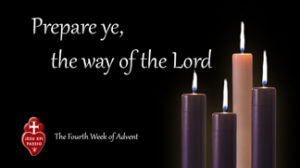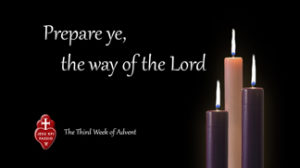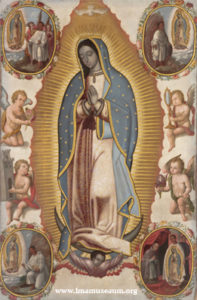Fourth Sunday of Advent
Scripture:
Micah 5:1-4a
Hebrews 10:5-10
Luke 1:39-45
Reflection:
The readings for this Fourth Sunday of Advent, the final Sunday before the Feast of Christmas, ponder some of the mysteries that underlie God’s birth into the human family.
Micah prophesies that, when the Savior comes into the world, he will be born in a place so small and insignificant that it is not even identified “among the clans of Judah.” Yet, despite the insignificance of the place of his birth, the Savior will “stand firm and shepherd his flock…”and “his greatness shall reach to the ends of the earth….”
In the Gospel Luke recounts for us Mary’s visit to her cousin, Elizabeth, after the angel revealed to Mary that her cousin, too, was “with child.” Elizabeth, too old to conceive, and Mary, who had no relations with a man, both pregnant through the power of God. Two women, who couldn’t possibly bring forth life, are the mothers of the two greatest figures in human history: John the Baptist, the greatest of the prophets, and Jesus Christ, the Son of God and Savior of the world.
Through these readings we are invited to recall that our salvation comes through the gracious goodness of God. Our hope does not come from our plans, our talents or our accomplishments. When God comes into our lives, he does so from places we’ve never heard of, through people who are often beneath our notice and in events that we least expect. Mary and Elizabeth illustrate for us the attitude of heart we must cultivate, a deep trust in God and an openness to God’s invitations.
Fr. Michael Higgins, C.P., is the director of Mater Dolorosa Passionist Retreat Center, Sierra Madre, California.






